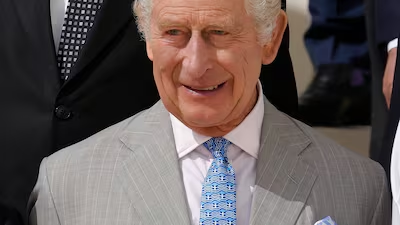
King Charles III at Cop28 in Dubai. AP
King Charles III at Cop28 in Dubai. AP
Why King Charles's tie at Cop28 in Dubai is raising eyebrows in the UK
Many in Greece see the king's choice of neckwear as a sign of support amid a diplomatic spat with the UK government
